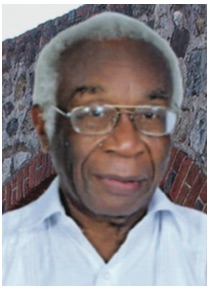UWI St Augustine’s first History Teacher
In October 1963, with the opening of what was then called the College of Arts and Sciences, teaching began at St Augustine in the humanities and the social and natural sciences (previously the only two faculties were Agriculture and Engineering). Conditions for staff and students were difficult, with a severe shortage of teaching resources, including books, and a scramble for usable classroom and laboratory space.

The first person to teach history courses at St Augustine was the eminent Jamaican historian, Professor Emeritus Carl Campbell, who arrived here just days before the term began. He stayed until 1972, pioneering, along with a few colleagues, undergraduate teaching and graduate research in History on the still new campus. Campbell transferred to Mona in 1972, and was a pillar of the History department there up to, and long after, his official retirement in 2004.
Even though he went to Mona in 1972, he returned often to Trinidad and to the St Augustine Campus. His major research interests were the history of Trinidad’s free coloured and free black communities, and the social history of education in T&T between the 1830s and the 1980s. His books on these two subjects remain the authoritative works up to today.
A hybrid virtual/in-person event was held on January 29, in which copies of the special journal issue were presented to Campbell at Mona. Many people attended virtually and paid tribute to his many contributions to the writing and teaching of Caribbean history. They included UWI Vice Chancellor Professor Sir Hilary Beckles, who recalled that Campbell was head of the department at Mona when he arrived for his first job there, and was met by him at the airport in Kingston. Other distinguished UWI historians who spoke briefly included Sir Woodville Marshall of Cave Hill and Sir Roy Augier of Mona.
While Carl Campbell spent most of his UWI career at Mona, St Augustine can claim him as the “Founding Father” of history teaching and research here. His pioneering research and writing on T&T’s history in the 19th and 20th centuries ensure he will always be remembered.